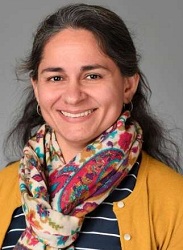Researchers from Regenstrief Institute and Indiana University School of Medicine have conducted the first time-motion study in more than a decade to assess the impact of geographic cohorting of hospitalists.
Geographic cohorting –- restricting or localizing hospitalists and their patients to one or two inpatient units rather than having hospitalists travel from floor to floor, across wings or between buildings to care for patients –- is becoming increasingly popular with health care systems and hospitals. But what is the impact of this method of staffing?
The new time-motion study found potential benefits from geographic cohorting such as increased number of bedside visits and time spent by the hospitalist with patients, yet the researchers also reported that geographically cohorted hospitalists were observed to be interrupted more frequently than hospitalists caring for patients spread across the hospital. Cohorted hospitalists were also observed spending more time working on a computer.
“We found that there are definitely tradeoffs in having hospitalists focus on patients in one or two units rather than care for patients throughout the hospital,” said study senior author and Regenstrief Institute research scientist Michael Weiner, M.D., MPH. “While patients and their families may be pleased that geographically cohorted hospitalists are not too far away so the doctor can spend time examining and evaluating the patient, explaining and engaging in shared decision-making, hospitalists assigned to only one or two units may not be working optimally as they are frequently interrupted because they are frequently present.
“Intriguingly, we don’t yet know why geographically cohorted hospitalists spend more time on the computer than non-geographically cohorted counterparts,” Dr. Weiner, a health services researcher, noted.
Much of the meaningful work that a hospitalist must accomplish takes time — reviewing diagnostic test results, consulting with colleagues, conversing with nurses. It occurs away from the patient and requires the hospitalist to determine an appropriate balance between direct care at the bedside and indirect care during which the patient is not present. A significant percentage of hospitalists work an intense schedule of one week on followed by one week off and are often assigned 12-hour shifts.
Hospital medicine is the fastest growing medical specialty with more and more hospitals and health care systems employing hospitalists, physicians who work exclusively in hospitals, to care for inpatients.
“Our study paints a unique picture that we need to be aware of, explore and address to make the maturing specialty of hospital medicine better for patients and hospitalists,” said study corresponding author Areeba Kara, M.D., M.S., an IU School of Medicine assistant professor of clinical medicine. “Knowing what goes on during the workday of geographically cohorted hospitalists and contrasting that with what non-geographically restricted hospitalists encounter on the job will help researchers and administrators enable hospitalists to carry out their patient care missions at the highest level possible.” Dr. Kara has been a hospitalist with IU Health since 2003.
“A Time Motion Study Evaluating the Impact of Geographic Cohorting of Hospitalists” is published online ahead of print in Journal of Hospital Medicine.
 The study was supported by IU School of Medicine’s Advanced Scholarship Program for Internists in Research and Education (ASPIRE). Dr. Kara was a 2017-18 ASPIRE Scholar mentored by study coauthors Dr. Weiner and Regenstrief Institute Research Scientist Kurt Kroenke, M.D, an IUPUI Chancellor’s Professor and professor of medicine at IU School of Medicine.
The study was supported by IU School of Medicine’s Advanced Scholarship Program for Internists in Research and Education (ASPIRE). Dr. Kara was a 2017-18 ASPIRE Scholar mentored by study coauthors Dr. Weiner and Regenstrief Institute Research Scientist Kurt Kroenke, M.D, an IUPUI Chancellor’s Professor and professor of medicine at IU School of Medicine.
Other co-authors of the study are Mindy Flanagan and Rachel Gruber of Regenstrief Institute, and Kathleen Lane and Na Bo of IU School of Medicine, Department of Biostatistics.
 About Michael Weiner, M.D., MPH
About Michael Weiner, M.D., MPH
In addition to his role as a Regenstrief research scientist, Dr. Weiner is associate director of the William M. Tierney Center for Health Services Research at Regenstrief; principal investigator and director of the VA HSR&D Center for Health Information and Communication at Richard L. Roudebush VA Medical Center; and a professor of medicine at IU School of Medicine.
About Regenstrief Institute
Founded in 1969 in Indianapolis, the Regenstrief Institute is a local, national and global leader dedicated to a world where better information empowers people to end disease and realize true health. The Regenstrief Institute and its researchers are responsible for a growing number of major healthcare innovations and studies. Examples range from the development of global health information technology standards that enable the use and interoperability of electronic health records to improving patient-physician communications, to creating of models of care that inform practice and improve the lives of patients around the globe.
A key research partner to Indiana University, Regenstrief Institute is celebrating 50 years of healthcare innovation. Sam Regenstrief, a successful entrepreneur from Connersville, Indiana, founded the institute with the goal of making healthcare more efficient and accessible for everyone. His vision continues to guide the institute’s research mission.
















